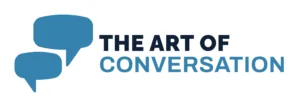Job interviews serve as pivotal moments in a professional’s career journey, often determining access to key opportunities. Effective conversational skills are not only about responding to questions but also about engaging interviewers, showcasing confidence, and creating a memorable impression. This article explores the essential elements of conversation skills for job interviews, offering insights on preparation, communication techniques, and building rapport.
Preparation: Laying the Foundation
Preparation is the cornerstone of successful interviews. By anticipating potential questions and understanding the context of the interview, candidates can significantly enhance their conversational effectiveness.
Researching the Company and Role
Understanding the company’s values, goals, and challenges is an essential starting point. By researching the organization’s website, industry trends, and recent news, candidates can tailor their answers to align with the employer’s expectations. This knowledge also enables candidates to craft thoughtful questions, demonstrating genuine interest and proactive engagement.
Anticipating Common Questions
Job interviews often feature predictable questions such as, “Tell me about yourself,” or “What are your strengths and weaknesses?” Preparing concise and authentic responses to these questions helps candidates navigate the interview smoothly. Equally important is preparing for behavioral questions that explore past experiences, such as, “Can you describe a time when you overcame a challenge?” Structuring responses using the STAR (Situation, Task, Action, Result) method ensures clarity and coherence.
Practicing Delivery
Rehearsing answers can enhance confidence and reduce nervousness. While practice should not lead to overly scripted responses, it ensures candidates can articulate their thoughts effectively. Mock interviews with peers or mentors can provide valuable feedback and help refine delivery.
Active Listening: The Key to Engaging Conversations
Active listening is a fundamental conversational skill that goes beyond hearing words. It involves understanding the speaker’s intent, responding appropriately, and fostering a dynamic exchange of ideas.
Demonstrating Engagement
Maintaining eye contact, nodding, and using verbal affirmations like “I see” or “That’s interesting” signals attentiveness. These cues assure the interviewer that their words are valued, fostering a positive interaction.
Responding Thoughtfully
Effective conversationalists respond thoughtfully, addressing the question directly and providing relevant examples. If a question is unclear, seeking clarification demonstrates a candidate’s commitment to understanding rather than making assumptions.
Adapting to Nonverbal Cues
Interviewers often convey subtle cues through body language. By observing these signals, candidates can gauge the interviewer’s level of interest or understanding and adjust their responses accordingly.
Articulating Answers: Precision and Clarity
How candidates articulate their answers significantly impacts the impression they leave. Clarity, conciseness, and relevance are the hallmarks of effective communication in interviews.
Structuring Responses
Well-structured answers help candidates convey ideas effectively. Starting with a clear statement, elaborating with examples, and concluding with relevance to the role ensures a logical flow. For instance, when asked about a strength, a candidate might state the quality, describe how it was demonstrated in a specific situation, and explain its applicability to the prospective job.
Avoiding Jargon and Overcomplication
While technical roles may require industry-specific terminology, excessive use of jargon can alienate interviewers. Candidates should prioritize clear and accessible language, ensuring their responses resonate with both technical and non-technical interviewers.
Using Positive Language
Positive language conveys confidence and optimism. Phrases like “I successfully managed” or “I collaborated effectively” project a proactive mindset. Candidates should avoid negative expressions or apologetic tones, even when discussing challenges or weaknesses.
Building Rapport: Establishing Connection
Building rapport is about creating a sense of mutual respect and understanding. A strong connection with the interviewer can make candidates stand out, not only as qualified professionals but also as individuals who fit the company culture.
Mirroring Communication Styles
Adapting to the interviewer’s communication style can foster a sense of alignment. For instance, if the interviewer adopts a formal tone, candidates should respond similarly. Conversely, a conversational and approachable tone may allow for a more relaxed interaction.
Sharing Genuine Enthusiasm
Expressing authentic enthusiasm for the role and the company can leave a lasting impression. Passionate candidates often stand out, as their energy and commitment resonate with interviewers.
Asking Insightful Questions
Asking thoughtful questions demonstrates curiosity and engagement. For example, inquiring about the team’s goals, the company’s approach to innovation, or opportunities for professional growth shows candidates are invested in understanding their prospective workplace.
Managing Nervousness: Confidence in the Spotlight
Nervousness is a natural response to high-stakes situations like job interviews. However, managing anxiety effectively allows candidates to project confidence and composure.
Breathing Techniques and Mindfulness
Simple breathing exercises can help candidates calm their nerves before and during the interview. Practicing mindfulness—focusing on the present moment—reduces stress and enhances concentration.
Visualizing Success
Visualization techniques, where candidates imagine themselves confidently navigating the interview, can boost self-assurance. Positive mental rehearsals contribute to a calm and prepared demeanor.
Focusing on Strengths
Rather than fixating on potential shortcomings, candidates should concentrate on their strengths and unique value. This positive focus shifts the narrative from fear of failure to showcasing capabilities.
Navigating Difficult Questions: Tackling Challenges Gracefully
Interviews often include challenging questions designed to test problem-solving and adaptability. Handling these questions with poise reflects a candidate’s resilience and communication skills.
Addressing Weaknesses
When discussing weaknesses, candidates should choose areas unrelated to the core competencies of the role and describe how they are actively working to improve. This approach demonstrates self-awareness and a commitment to growth.
Managing Gaps or Challenges in Employment History
Honesty is key when addressing employment gaps or challenges. Candidates should briefly explain the circumstances and emphasize how they utilized that time productively, such as through skill development or volunteering.
Handling Unexpected Scenarios
Interviewers may present hypothetical scenarios or unconventional questions to assess a candidate’s creativity and composure. Thinking aloud and explaining the reasoning process provides insight into the candidate’s problem-solving approach.
Summary
Mastering conversation skills for job interviews requires preparation, active listening, articulate communication, and rapport-building techniques. By focusing on clarity, relevance, and adaptability, candidates can navigate interviews with confidence and poise. These skills not only enhance the immediate interview experience but also set the stage for long-term professional success.
